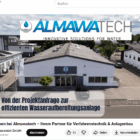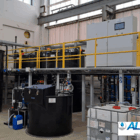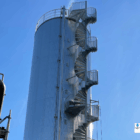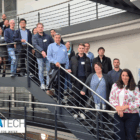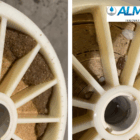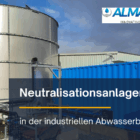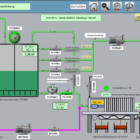An emulsion is a mixture of two normally immiscible liquids, such as oil and water, in which one phase is dispersed in the other in the form of fine droplets. The two main types are:
- Oil-in-water emulsions (O/W): Oil is the disperse phase, water is the continuous phase. Examples: Milk, cosmetic creams.
- Water-in-oil emulsions (W/O): Water is the disperse phase, oil is the continuous phase. Examples: Butter, aqueous lubricants.
Table of contents
Stabilization and destabilization
Emulsifiers are used for stabilization. They reduce the surface tension and form a boundary layer around the droplets, which prevents coalescence. Emulsions can be destabilized by various influences:
- Coalescence: droplets merge and grow.
- Sedimentation or creaming: Different densities of the phases lead to separation.
- Breaking the emulsion: Complete separation of the phases.
Splitting is carried out using chemical, mechanical or thermal processes. In industrial practice, coagulation, flotation and centrifugation are frequently used.
Applications in the industry
Emulsions play an important role in many branches of industry:
- Metal processing: Cooling and lubrication during processing.
- Food industry: Production of emulsifier-stabilized products such as mayonnaise or dressings.
- Cosmetics: Skin care products such as lotions and creams.
- Petrochemicals: separation of water and crude oil in refineries.
Emulsion splitting in wastewater treatment
Emulsions in industrial wastewater pose a challenge, as the finely dispersed oil droplets cannot be easily removed. Various processes are used here:
1. Chemical emulsion splitting
- Coagulation and flocculation: The addition of chemicals such as precipitants (e.g. iron or aluminum salts) or cationic cationic polymers neutralizes the emulsifiers and leads to aggregation of the oil droplets.
- pH adjustment: Emulsions can be destabilized through targeted pH value changes, which is particularly effective when treating acidic or alkaline emulsions.

Photo: CP system ALMA CHEM MCW for the elimination of heavy metals, AOX, hydrocarbons and cyanides
2. mechanical separation processes
- Flotation systems: Dissolved air flotation systems such as the ALMA NeoDAF efficiently separate the finest oil droplets.
- Centrifuges and decanters: Here, separation is supported by centrifugal force, whereby oil and water are separated due to their different densities.
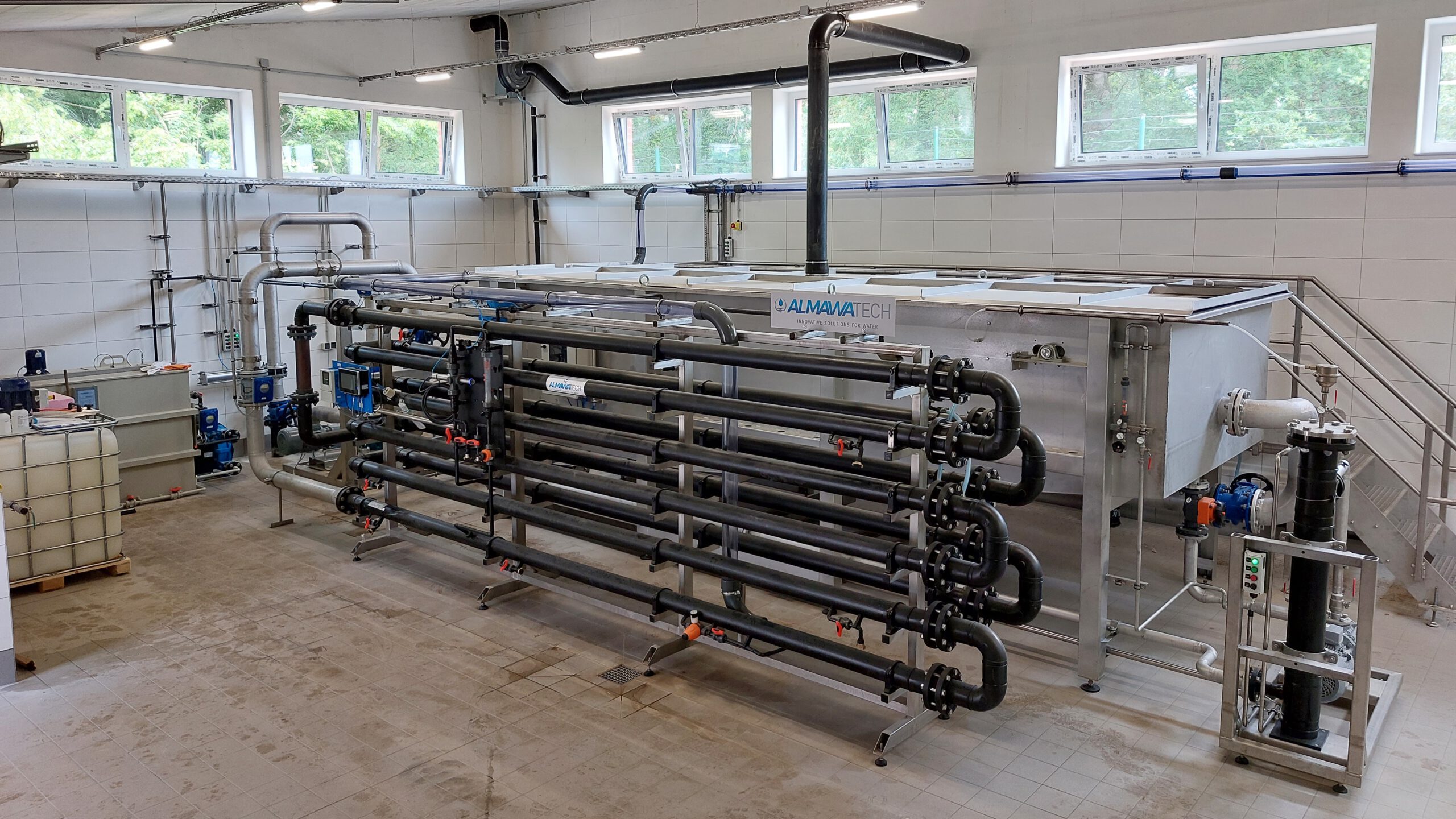
Photo: ALMA NeoDAF flotation plant
3. thermal processes
- Heating reduces the viscosity of the emulsion, which facilitates phase separation.
4. membrane process
- ultrafiltration or nanofiltration are particularly effective for very stable emulsions. These processes can remove fine oil droplets and pollutants from the water, but they require pre-treatment to prevent fouling.
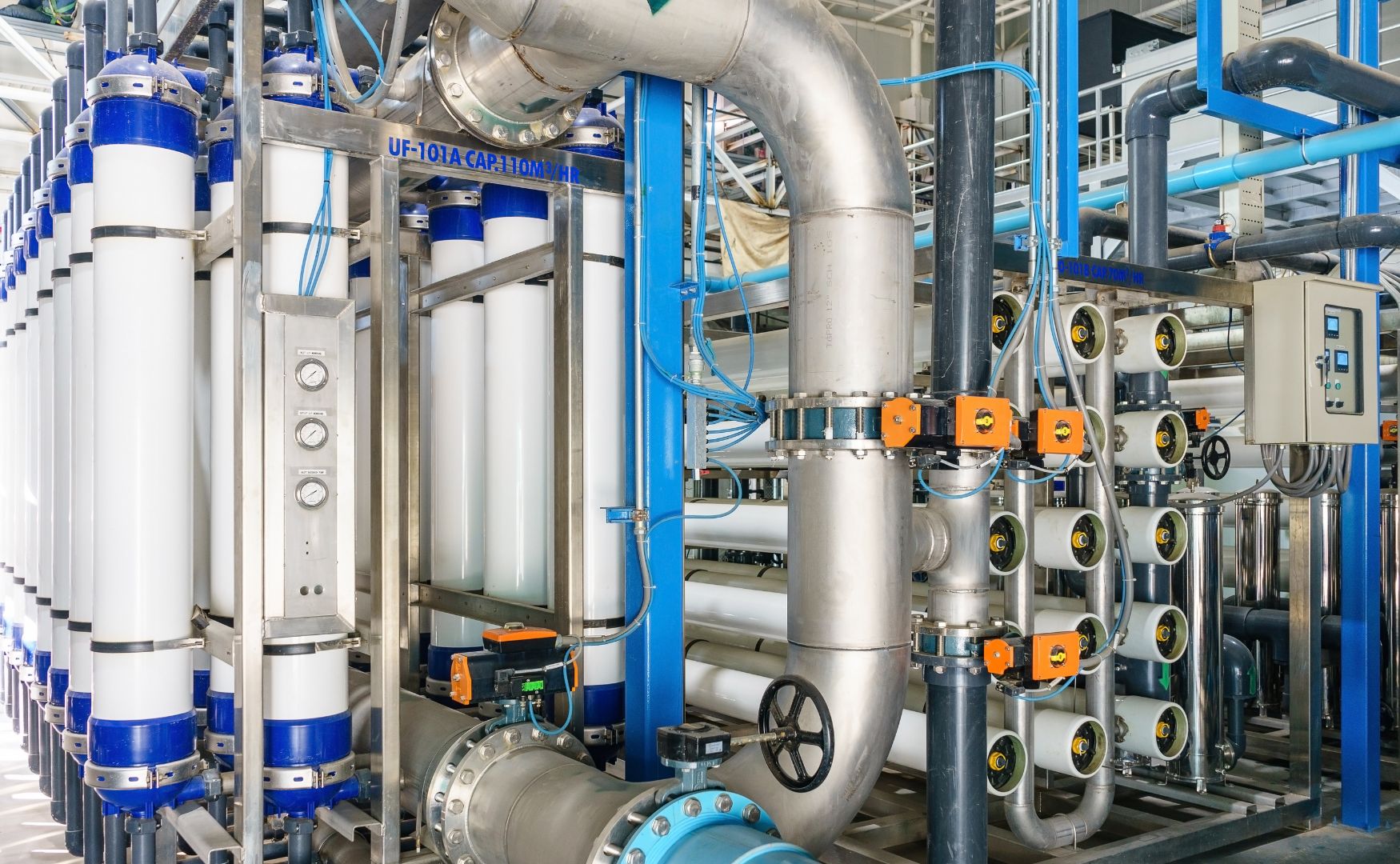
Photo: Ultrafiltration system and reverse osmosis system
Advantages of emulsion splitting
- Efficient separation of pollutants: reduction of organic impurities and mineral oil residues in wastewater.
- Cost savings: Reduction of disposal costs through recovery of water and oils.
- Compliance with legal limits: The treatment enables compliance with strict environmental regulations.
- Reuse: Purified water can be fed back into the production process.
Emulsion splitting with ALMAWATECH
ALMAWATECH offers a wide range of solutions for emulsion splitting. Our CP systems and flotation systems, such as the ALMA CHEM MCW and ALMA NeoDAFare specially designed for the efficient treatment of emulsions. We also carry out laboratory and pilot tests to determine the optimum process and the right chemicals for your specific wastewater.
Conclusion
The treatment of emulsions is crucial for the efficiency and environmental compatibility of industrial processes. With our customized technologies and equipment, we offer solutions that are both economically and ecologically convincing.
For further information on our products, please feel free to contact us at any time!


